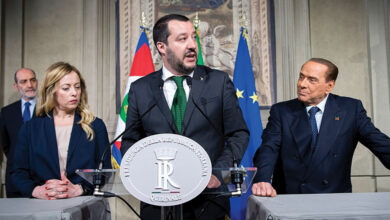Regulating lobbying
Sherry Perreault was appointed as Ireland’s first Head of Lobbying Regulation in May 2015, overseeing the implementation of the Regulation of Lobbying Act on behalf of the Standards in Public Office Commission.
On 1 September, the new Regulation of Lobbying Act 2015 will commence, and with it, the requirement for those who lobby public officials to register and report on their activities. As a result, people will have greater access to information about how decisions on policy, legislation and funding are informed and made.
Lobbying is a vital part of the policy-making process, helping to ensure that public officials have access to the information and evidence needed to make informed policy decisions. People conducting lobbying activities may meet with TDs and Ministers, local authorities and public officials, in order to represent the views of citizens and organizations. They provide information about a wide array of issues or causes in order to influence legislation, policy or program expenditures. In so doing, they play an important role in shaping the direction of the country.
Given the importance of lobbying, the public has a vested interest in knowing more about the interactions lobbyists have with decision-makers. The new legislation seeks to shine a light on lobbying activity and give the public access to such information. Individuals conducting lobbying activities must register online and disclose who they are lobbying, the subject matter of the communication, the method and frequency of communication, and the intended result.
To trigger the requirement to report activities, a three-step test must be met:
• the person conducting the lobbying activities must be: a professional lobbyist paid to communicate on behalf of a client; an employer with more than 10 employees where the communications are made on the employer’s behalf; a representative or advocacy body with at least one paid employee communicating on behalf of the members; or any person communicating about the development or zoning of land;
• the person must be communicating with a “designated public official”; and
• they must be communicating about a “relevant matter” (related to the initiation, development or modification of policy, program or legislation, the awarding of any grant, loan, contract, or of any licence or other authorisation involving public funds, or any matter involving the development or zoning of land).
If all of the above criteria are met, the person must register and file returns of their lobbying activities every four months in the online registry.
Obviously the Act captures professional lobbyists, and organisations that exist to advocate for changes to policy, programs or funding. However, people who might never define themselves as lobbyists, or their activities as lobbying, may find that their activities are covered by the legislation. A shop-owner seeking zoning changes in order to expand, the head of a professional sports team wanting funding for a new arena, or the local publican wanting to lower alcohol excise tax might all have to register their lobbying activities.
It is also worth noting that lobbying activity can take many forms. A quick email, a chat on the phone or a chance encounter in the shop may be just as effective, and frequently used, as formal meetings in Leinster House. Regardless of the venue or level of formality, if it meets the three-step test, it must be registered.
The commencement of the Act will significantly enhance the visibility of lobbying activities in Ireland. Since taking on my new role, I have been asked whether I think this additional scrutiny will create a “chill effect” on lobbying. It is certainly not the intent of the legislation, and would be unfortunate if it occurs. The first few months may require some adjustment, but there is no evidence that either public officials or those lobbying them will be reluctant to engage with one another. Indeed, other jurisdictions with robust lobbying regulation frameworks in place continue to report frequent and unimpeded interactions between public officials and those lobbying them despite (or perhaps reinforced by) the additional scrutiny.
I anticipate the same will hold true in Ireland, and lobbying will continue to play a vital role in decision-making.
Sherry Perreault is currently Head of Lobbying Regulation. Prior to taking on the role, she was a senior director in Canada’s Office of the Conflict of Interest and Ethics Commissioner.






